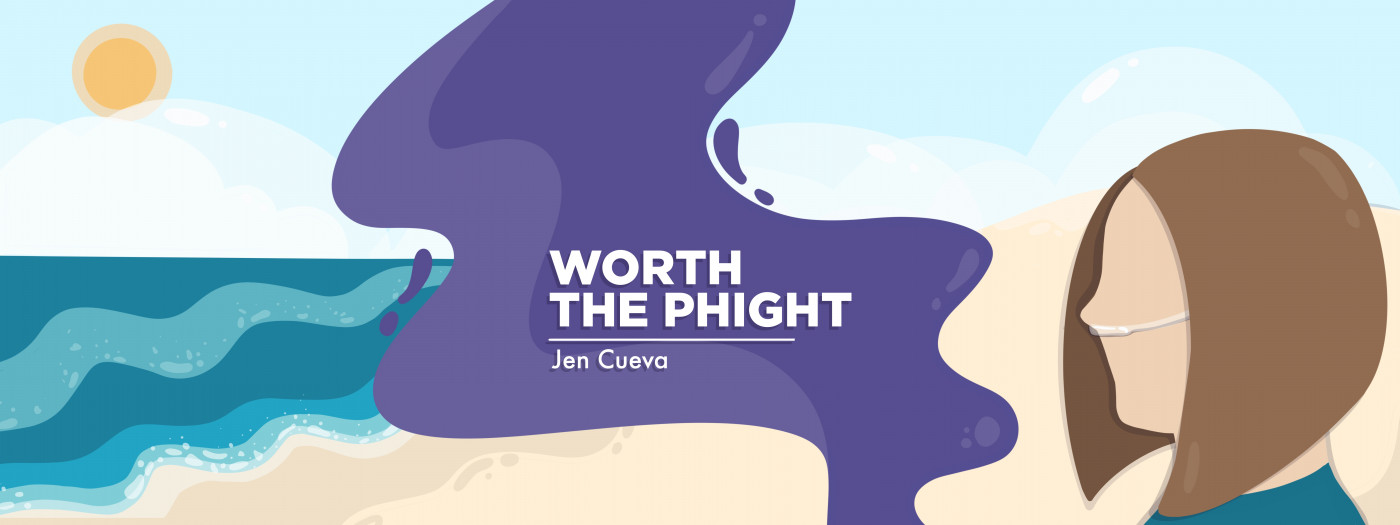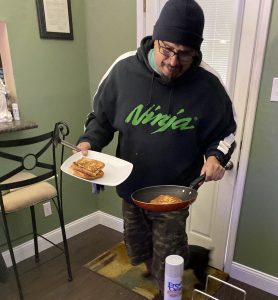How ‘Little House on the Prairie’ Helped Me Through Texas’ Recent Disaster
Written by |

When we think about natural disasters here on Texas’ Gulf Coast, we usually think about hurricanes. But as 2021 took off, we found ourselves dealing with an arctic winter blast instead. Because I am now on continuous oxygen, the weather is making things a bit more difficult for me.
When the extreme weather first began early last month, we were affected by rolling power blackouts throughout the day, but we weren’t yet overly concerned about it. However, as we headed to bed around midnight that day, we found ourselves without power, water, or the internet. Thankfully, our wood-burning fireplace helped to keep us warm.
As it turns out, our hurricane preparedness skills were useful in this situation: We had a few cases of water already stored, and a generator for backup power.
Thankfully, we were able to use the generator to power a space heater that allowed us to sleep at night. I am grateful we were able to stay warm as we slept.
The generator also provided power for my oxygen concentrator.
My husband went above and beyond
As usual, my husband, Manny, ran around like a chicken with its head cut off to make sure everything was safe and that we stayed warm. Each time I tried to help, Manny told me to rest as he took on all of the duties. When I wasn’t hungry but needed to eat, he braved the winter cold to make me a grilled cheese sandwich on the outdoor grill. He also boiled water for coffee and hot tea.
Because my PH lungs don’t like cold air and cause a burning sensation if I breathe it in, Manny wanted me to limit my exposure. We used heated and normal blankets to bundle up.
The cold air also intensifies much of my pain. I missed my hot-water soaks for a few days, which meant taking more pain medications than I would have liked.
Being prepared is key
If you use a portable oxygen concentrator, make sure to keep the batteries fully charged. If you use oxygen, calling in advance and keeping extra full tanks on hand also is helpful.
Although we didn’t have much cellphone service, it’s important to keep cellphones charged. This may be your only connection to the outside world at times.
Another important tip that many people forget, including many of my neighbors, is to fill up vehicles with gas. This is in case you need to evacuate quickly.
Do you have a critical care form?
I have a critical care form with our local power company, which provides certain benefits to people with medical conditions, but I find it doesn’t always help. A better system needs to be put in place.
For example, what does a person do if they’re in an electric bed, use an electric wheelchair, or need oxygen or other life-sustaining equipment? I realize I’m not the only one who went through this ordeal, so maybe if we put our heads together we could better advocate for ourselves with these utility companies.
Have you had a similar experience?
The Ingalls would be proud
While Manny went for more fuel, I joked with a colleague about “handling” the fire. I attribute my skills in doing this to watching the TV series “Little House on the Prairie” when I was growing up. I’ve found that implementing some of the life lessons I learned from this show has helped in many situations.
The main protagonists of the series, the Ingalls family, loved hard, worked hard, and enjoyed the simple things in life. They appreciated quiet, quality time together. I thought about this as Manny and I played board games to pass the time during the crisis.
“The real things haven’t changed. It is still best to be honest and truthful; to make the most of what we have; to be happy with simple pleasures; and have courage when things go wrong.”― Laura Ingalls Wilder
***
Note: Pulmonary Hypertension News is strictly a news and information website about the disease. It does not provide medical advice, diagnosis, or treatment. This content is not intended to be a substitute for professional medical advice, diagnosis, or treatment. Always seek the advice of your physician or other qualified health provider with any questions you may have regarding a medical condition. Never disregard professional medical advice or delay in seeking it because of something you have read on this website. The opinions expressed in this column are not those of Pulmonary Hypertension News or its parent company, Bionews, and are intended to spark discussion about issues pertaining to pulmonary hypertension.





Leave a comment
Fill in the required fields to post. Your email address will not be published.